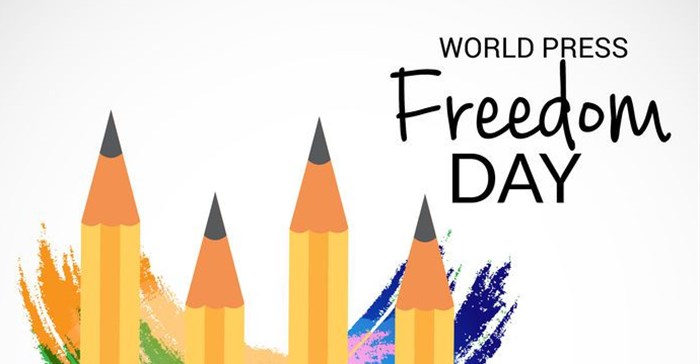
Related
Top stories


ESG & Sustainability#BudgetSpeech2026: SRD grant unchanged, other Sassa social grants see hike
7 hours




More news











ESG & Sustainability
South Africa’s carbon tax should stay: climate scientists explain why











In the beginning, it meant freedom to publish for the people who owned a printing press. Over time, press freedom extended, slowly, to encompass those who could buy the equipment needed for broadcasting. Today, it’s much wider. Anybody who tweets does Facebook, or sends a message to a WhatsApp group is a user of press freedom. It’s permissionless publishing.
But amongst everybody who benefits from press freedom in this sense, the people who do journalism are the ones most in need of this liberty. This is because the work they do – publishing verified information in the public interest – raises hostility amongst those who want to conduct their affairs outside the public spotlight. It is these groups who find journalism “inconvenient”, and who work hard to suppress journalism and curtail press freedom.
In sum, while press freedom is not only for “the press”, it is especially important for those communicators who put into the public domain the news that others would prefer to keep hidden.
This puts an onus on journalists and media owners to be sure that what they publish is accurate, fair and does indeed merit public exposure. They need to practise professional standards.
The special place of people doing journalism was well recognised by the founders of World Press Freedom Day, a group of African journalists who attend a Unesco conference in newly independent Namibia in 1991. In their Windhoek Declaration, they saw press freedom as three things: media freedom, media pluralism and media independence.
On freedom, they had no illusions that for journalism to play a watchdog role, the excessive power of governments over mass communication had to be countered. Cognisant that different journalists deal in different stories, and aware of different orientations of media owners, the founders also saw the need for a plurality of media as key to democracy. Where one media group fell short on stories unpalatable to its owner, the existence of another group could fill the gap. State or private monopoly make this impossible. Hence, the call for media pluralism.
Finally, the Windhoek Declaration also insisted on independence – meaning the need for journalists to uphold professional standards and to resist political and economic pressures that could corrupt the integrity of their practice.
This package of the three factors for press freedom – freedom, pluralism and independence – is just relevant today as 1991. It frames Unesco’s 2018 report on World Trends in Freedom of Expression and Media Development. This Unesco report shows there are increased curbs on press freedom, including Internet filtering, blocking and connectivity cut-offs. It notes that new laws against “fake news” threaten to gag genuine news. It points to violations of privacy by spy agencies who lack independent oversight and by internet giants who vacuum up data indiscriminately. It notes that both make us think twice about accessing information critical of the government or speaking out in the public sphere.
With pluralism, the Unesco’s study highlights the explosion in access to online information, but also a decline in newspapers who have typically been the main supplier of original journalism. The report shows there is also still a disproportionate use of male news sources, which constrains content diversity. In addition, the report warns that algorithms are giving people more of the same, rather than exposing them to alternatives.
As regards independence, the Unesco document also points to the negative impact of commercial pressures on the one hand and intimidation emanating from politicians on the other. But the report also highlights how important independent professional journalism is when society risks being drowned in disinformation.
The Windhoek Declaration call for the establishment of the World Press Freedom Day was officially recognised by the United Nations in 1993. This makes 2018 the 25th anniversary of this opportunity to defend journalism under threat. This milestone coincides with 2018 also being the 70th anniversary of the Universal Declaration of Human Rights. The UDHR establishes in international law the specific right that underpins press freedom – namely, the right to seek, receive and impart information and opinion.
South Africans know well the importance of guarding journalism against capture and fighting violations of the human right to freedom of expression. Experience teaches that the country can only make decent progress towards the internationally-agreed Sustainable Development Goals if there is free press and an independent judiciary playing their respective roles.
This is why South Africans may feel invested in the 2018 theme for World Press Freedom Day: “Keeping power in check: media, justice and the rule of law”. So, the country can feel part of a global movement on 3 May 2018. It’s a day to celebrate and consolidate press freedom for the future.
Originally published on The Journalist.
